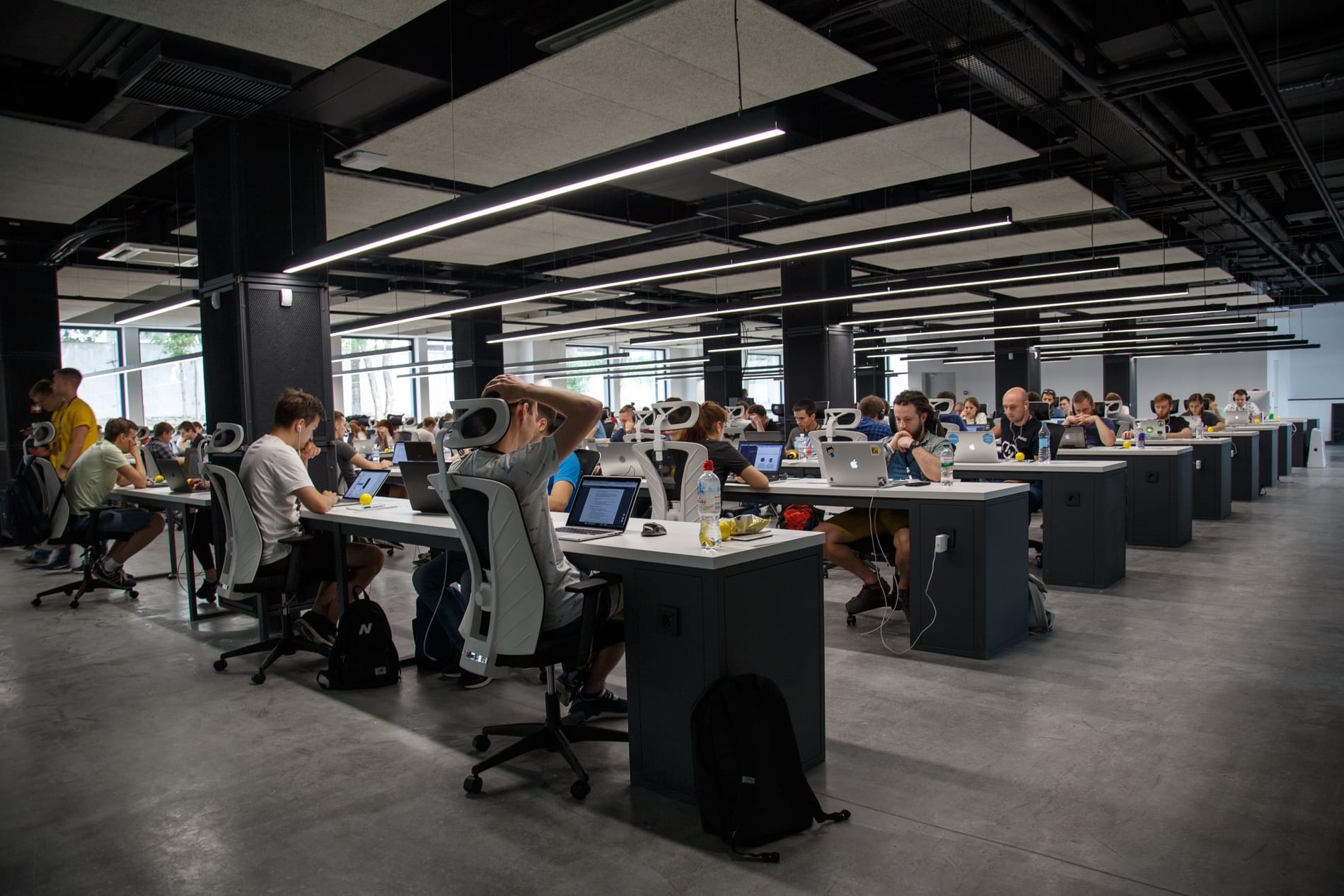
Personal interview questions and examples

put the ‘human’ element into ‘HR recruiter’. When hiring for a developer , you’ll naturally ask a lot of questions about your candidates’ technical skills.
But to build the most accurate picture of an individual that you can, you need to get a little personal. Their favorite breakfast cereal or holiday destination might be a bit much, but it’s important that you do ask open-ended questions about your as a person. After all, they need to be able to integrate well into the company and to understand the .
In this article, you’ll see:
- The best personal interview questions to ask a candidate
- Unique and interesting personality questions for interviewers
- The rules for asking personal questions
- What you can learn from asking a candidate personal questions about themselves
So let’s get started by seeing the benefits of asking personal interview questions.
For more, check out these team player interview questions.
Why ask personal questions during an interview?
A about , stress management, or strengths and weaknesses, can help to see another side to a . Beyond their technical , experience, and abilities, to look at their personal and communication skills.
Sure, there are no right or wrong answers, but there are tried and tested techniques. Still, the response you get can help you see if your will fit into the company’s culture and position-specific challenges that happen in the at your company.
Mix the odd in there too, and you’ll soon be able to build a comprehensive cultural assessment of your .
Personal interview question examples
Common interview questions with a personal focus, like, ‘tell me a bit about yourself,’ allow a hiring manager to identify, not only the most qualified candidates but also to work out who will be the best fit for the team.
Open-ended questions are a way to dig a little deeper and learn more about your candidate’s personality than you can with standard informational interview questions.
Take the following example of a common job interview question that focuses on the personal:
‘Do you find it easy to make friends?’
The answer can be used to see if the candidate will fit into the social aspects of your company’s culture.

Image credit: Startup Stock Photos from Pexels
Even the most common interview question can often have a personal element.
Essentially, personal interview questions can help you to establish how well a person knows the position they’re being interviewed for, as well as if they’ll personally fit into your company.
Interesting personal interview questions to ask a candidate
Interviews are a give-and-take situation for both the candidate and the interviewer. You need to give a little to your candidate if you want them to give you more in return.
So before you go throwing personality-specific questions to your candidate, tell them a little of the more ‘personal’ things about your company. For example, how the company started, what it’s focussing on now, what’s important for the company.
A quick tip is that personal questions during the interview process are often best saved for the second interview, should your candidate make it that far. After all, you don’t want to come on too strong, too soon!
Questions about teamwork

Image credit: Helena Lopes auf Unsplash
More often than not, developers are part of a team. So gauging your candidate’s relationship with teamwork is critical if you’re to hire the best possible person.
- Do you prefer to work in a team or on your own?
- Can you give a specific example of implementing your teamwork skills in your previous job?
- Do you prefer to lead a team or take a back seat?
- If you have a difficult person on your team, how do you handle it?
When creating teamwork focused questions, think about how your teams work together. Are they agile, who heads them, and how do they support each other?
Personality-based interview questions
Asking an individual about their strengths and weaknesses is a very common job interview question. The reason it’s asked is the responses tell you a lot about how the individual interprets themself.
- What gets you excited?
- How do you handle stress and pressure in your work?
- Do you find it easy to talk to others about your work and their own work?
- Tell me about a professional failure you’ve had in the past.
Pay extra attention to body language when your candidate is answering these questions. You should be able to easily judge whether a response is factual or exaggerated in any way, shape or form.
Question about their internal awareness

Image credit: Sajjad Hussain M from Burst
Common job interview questions that revolve around a candidate’s self-awareness demonstrate their ability to internally evaluate themselves.
These types of questions require a little more personal understanding of oneself and some extra internal awareness. They’re also interesting because they give a candidate the opportunity to talk about their personal goals, but also their weaknesses, failures, and other ‘negatives’ that they might not expect to talk about in a job interview with a potential employer.
- How do you evaluate success?
- What are some things that get under your skin in terms of work?
- What do people most often give you feedback about?
- What decisions, if any, do you find hard to make?
- How do you handle being told you’re wrong or being over-ruled by a superior?
Some of these are tough interview questions that require complex and personal answers. Don’t be surprised if a candidate doesn’t know how to answer, or doesn’t answer the way you expected.
Background and expectation questions
The background and expectation question is one of the most common question types asked in job interviews.
- Tell me a little about yourself.
- What’s your proudest personal and professional moment?
- If you could tell your university-aged self something, what would it be?
- What are your salary expectations? Are you flexible?
Be careful asking some of these questions, as a candidate may feel a little uncomfortable going into detail about their personal life in a first meeting.
Questions about work habits
When asking personal questions about a candidate’s work habits, you’re hoping to find how organized they are and how independent they can be.
- How do you prioritize tasks and handle heavy workloads?
- Do you work after hours or on weekends?
- At what pace would you say you work?
- How do you organize your workday?
Remember that your candidates’ work habits may very well change if they get the job in your company to suit your company’s needs, culture, and structure.

Image credit: Annie Spratt auf Unsplash
Bonus points: Throwing this question to your candidate at the very start of your interview is a great way to help them relax and think about themselves, rather than the interview or position at hand.
What answers to look for in personal interview questions
As mentioned earlier, these questions are designed to give you a deep understanding of the thought process of your candidate.
Situationsbezogene Fragen, alongside personal interview questions, can help reveal a little of what’s behind the answer, too. So pay a little more attention to your candidate’s responses to these personal interview questions.
Keep an eye out for:
- The time taken to respond to a question
- Body language
- As you ask the question
- As they answer the question
- After they’ve given their answer
- The detail of the response
Of course, you need to pay attention to the actual answer given by the candidate, too. Pay attention to other factors, but let the candidate’s response be the best indicator of your assessment.
The rules for asking personal questions
Personal interview questions are great because they allow you to build a bit of a rapport with your candidate and put them at ease.
If you prioritize your tasks the same way as your candidate, agreeing with them can make them feel a little more at ease.
You may also even take this opportunity to ask your candidate some personal questions relevant to working at your company.
- Would they prefer to play on the Xbox or PlayStation?
- Do they prefer tea or coffee?
- Do they prefer to eat in a group or by themselves?
These are perfectly fine questions to ask and have a lot to do with the culture of your company and its working environment.

Image source: Alex Kotliarskyi auf Unsplash
However, depending on where you are in the world, certain questions may actually be illegal to ask. To avoid any problems, avoid questions relating to:
- Sexual identity
- Religion
- Family size and plans
Of course, if a candidate talks to you about their kids, be engaged. You can use personal interview questions as a bridge between talking about your candidate’s life away from work, but don’t probe beyond simple pleasantries.
Your turn to ask some personal interview questions!
Questions about your candidate’s personality are a great way to gather the information that’s hyper-relevant to the exact person you’re interviewing. You’re able to ask them directly about their work habits, how they deal with problems, and even a little bit of their personal life.
Using the information that you’ve learned in this article, go and review your recruitment plan. Craft some personal interview questions to learn more about your candidate on a personal level.
Image source: energepic.com from Pexels




